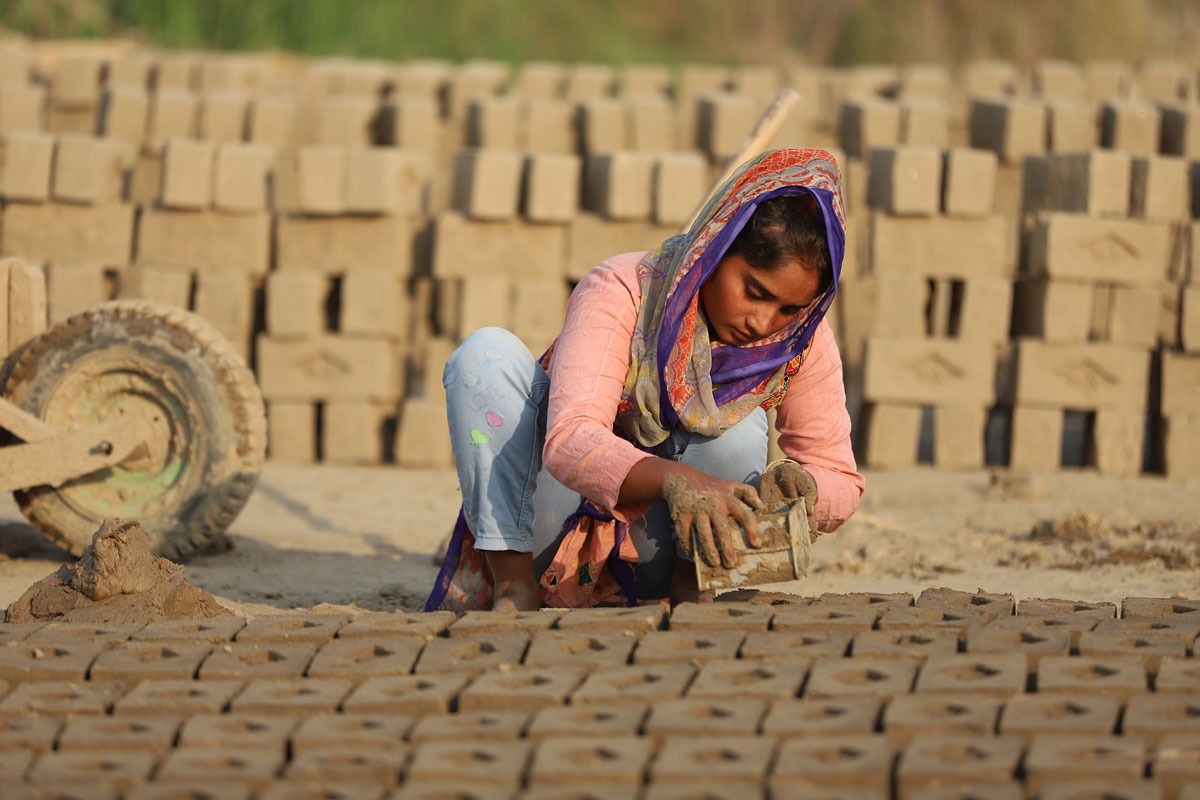By: Zara Amoon
Slavery, though officially outlawed, continues to persist in Pakistan in alarming forms, including bonded labor, child labor, and forced domestic work. Despite national and international commitments to human rights, these exploitative practices remain deeply entrenched in the country’s socio-economic framework, requiring urgent and comprehensive reforms.
Bonded labor, a prevalent form of modern slavery in Pakistan, forces individuals and families to work off debts under conditions that often span generations. The exploitative nature of these arrangements, coupled with disproportionately high interest rates, makes escaping these cycles of servitude nearly impossible. This practice is widespread in rural areas, particularly in agricultural fields and brick kilns. Meanwhile, child labor affects millions of young Pakistanis, pushing them into hazardous work in agriculture, manufacturing, and domestic settings, depriving them of education and opportunities. Similarly, forced domestic labor, especially involving young girls and women, remains a critical issue in urban centers.
While Pakistan’s Constitution guarantees fundamental rights, including freedom from slavery and forced labor, and laws such as the Bonded Labour System (Abolition) Act of 1992 and the Child Labor (Prohibition) Act of 1991 exist to combat these issues, enforcement remains a major challenge. Local authorities, often unaware of these laws or influenced by political and economic pressures, fail to implement them effectively. The judicial system, burdened by backlogs, frequently leaves victims without justice, perpetuating a culture of impunity.
Experts argue that legislative reform alone is insufficient to eradicate slavery. Comprehensive policies addressing socio-economic factors such as poverty, lack of education, and limited employment opportunities are crucial. Initiatives to improve access to education, particularly in rural areas, and vocational training programs could provide viable alternatives to exploitative labor. Economic empowerment schemes, including microfinance and support for small businesses, are also critical in breaking the cycle of debt bondage.
Corruption exacerbates the problem, with officials in key enforcement roles often complicit in exploitation. Strengthening anti-corruption agencies and introducing whistleblower protections are seen as vital steps toward accountability. Simultaneously, public awareness campaigns, involving civil society and religious leaders, could play a significant role in reshaping social attitudes toward slavery and encouraging communities to resist these practices.
International cooperation is another essential component. NGOs, foreign governments, and international organizations can contribute funding, expertise, and pressure to hold Pakistan accountable for its human rights commitments. Linking trade agreements and investments to progress on eliminating slavery could further incentivize government action.
The persistence of slavery in Pakistan underscores the need for immediate and coordinated efforts. Without addressing the legal, social, and economic drivers of exploitation, millions will remain trapped in conditions that strip them of their dignity and basic freedoms. Urgent action is essential to ensure a future where such practices are truly eradicated.


